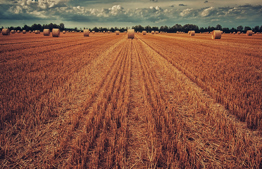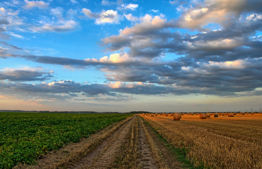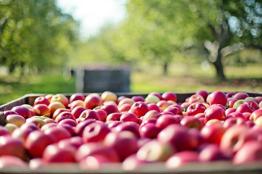Interested in supporting Israeli agriculture? The Ministry of Agriculture published a guide for identifying Israeli produce
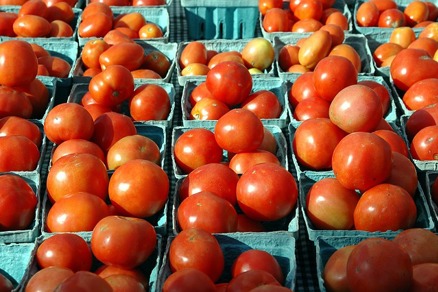
Official guide on how to identify Israeli produce in the marketplace. Are we willing on paying more for Israeli produce, and for which types of fruits and vegetables are only produced in Israel?
Unit: Research Department, Economics, and Strategy
Topic: The food we eat
Sub-topic: Quality standards for fruits and vegetables
Date published: September 18, 2022
For the article in Hebrew. Translated: Tevet 5783
What should you do if you want to buy local Israeli produce? For those who prefer Israeli produce, the Ministry of Agriculture prepared a guide to help you identify the differences between local Israeli produce and imported produce!
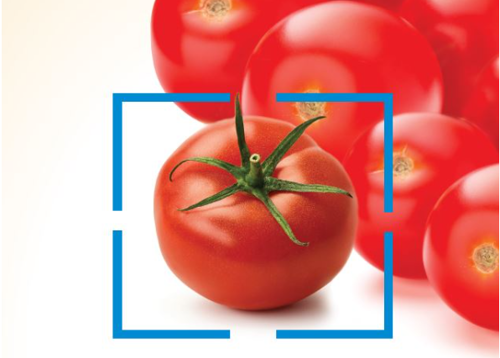
Discover how to select local produce!
The policy of marking fresh agricultural produce sold in Israel is an integral part of the agricultural reforms advanced by the Ministry of Agricultural and Rural Development to support and laud local agriculture, alongside taking the necessary steps to increase competition in the market of fruits and vegetables and reduce the cost of living.
The goal of this policy is to create transparency regarding the crops' origin and to allow the Israeli public make an educated choice when selecting the products of its preference. This is part of a broad effort spearheaded by the Ministry of Agriculture to advance a public agenda to prefer fresh, local produce. As part of this effort, the Ministry of Agriculture will set up the Israel Agriculture Department (hakla'ut yisra'elit). These steps are in addition to other actions that are part of the reform to invest in local agriculture with unprecedented resources. This includes direct support of farmers for the first time in the State of Israel; investment in technological research and development to help farmers cope with the changes in climate; assistance in purchasing state-of-the-art agricultural technology; increasing the quota for foreign agricultural workers; and advancing an amendment to the Law for the Encouragement of Capital Investments in Agriculture (1980).
What does the Israeli public prefer? Local or imported produce? From a survey conducted by the Ministry of Agriculture in March 2022.
- The majority of the Israeli public (63%) prefers Israeli agricultural produce, primarily stemming from a desire to support Israeli farmers. Furthermore, a majority (56%) is willing to pay more for Israeli agricultural produce. Four out of ten (39%) are willing to pay up to 10% more for local fruits and vegetables. Some 17% of the population, primarily from the religious sector, is willing to pay more than 10% more for local produce in comparison to the prices of imported fruits and vegetables.
- In contrast, only 3% noted that they prefer imported agricultural produce, primarily due to its price.
Discover how to select local produce!
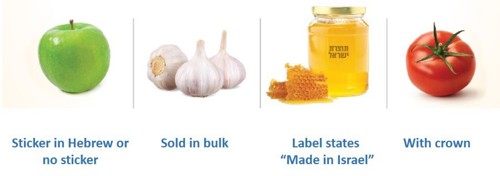
The Ministry of Agriculture and Rural Development is working to advance legislation to necessitate marking fruits and vegetables sold in Israel with their country of origin. That is, the sales points that will sell these fruits and vegetables will have to mark the country of origin of imported produce on behalf of the customers and separate it from local Israeli produce. How can we identify Israeli fruits and vegetables?
Until the legislation is completed, when there will be compulsory markings at all supermarket chains and sales points, the Ministry of Agriculture has published a guide to help identify Israeli produce:
|
Fruit / Vegetable |
Local Produce |
Imported Produce |
|
Apples and Pears |
Without a sticker / sticker in Hebrew. |
Sticker in a foreign language. |
|
Pineapples |
Complete with crown. |
Without crown. |
|
Grapes |
Packaged, labeled in Hebrew. |
Packaged, marked in a foreign language or in Hebrew noting that it was produced abroad. |
|
Garlic |
Israeli garlic is large, fragrant, |
Packaged in thin netting, relatively small and completely white. |
|
Tomato |
With crown (sepal and pedicel). |
Without crown. |
|
Cucumbers |
Cucumbers and peppers are imported throughout the year. To differentiate between local and imported produce, look at the boxes underneath the shelves. The boxes note all of the identifying information, including the country of origin. (Addition by Rabbi Moshe Bloom: It is also possible to ask the manager of the fresh produce section). |
|
|
Dates |
All Israeli |
|
|
Pomegranates |
All Israeli |
|
|
String beans |
All Israeli |
|
|
Leek |
All Israeli |
|
|
Beets |
All Israeli |
|
|
Bottle gourd (kara) |
All Israeli |
|
Note! As opposed to produce sold in bulk, it is already a legal obligation to mark packaged agricultural produce with its country of origin. This law is valid for packaged fruits, vegetables, mushrooms, honey, and fish.
Additions by Rabbi Moshe Bloom:
Note that "Israeli agriculture" includes yivul nochri (Israeli Arabs). As for the Palestinian farmers from Judea and Samaria, it seems that it is also considered Israeli produce for this issue. For instance, tomatoes from Shechem (Nablus) will come with their crowns.
The Ministry of Agriculture, as far as I understand, does impose the restriction of crown removal for tomatoes imported from Gaza.
The removal of crowns from imported produce is meant to prevent pests hidden in these leaves from entering Israel. It is a question as if to reasonable to demand that crowns be removed from produce grown in adjacent territory since these are not "new" pests that we are afraid will cross the boundary into Israel. But this question is true for Jorden and Egypt as well, and there Israel does treat it as imports, and the case is the same for Gaza.
Another reason for the crown-removal requirement from Gazan tomatoes was given by the Ministry of Agriculture in 2015: All produce imported to Israel is subject to an examination and authorization, including the areas this produce is grown. There is also a requirement for a statement by the government of the country of origin to authorize the produce. These two are not possible in Gaza. In contrast with the policy for other countries, it is impossible to send supervisors from Israel's Ministry of Agriculture to Gaza. Another possible reason for this requirement is that there is a concern that if the Gazan farmers would know that their produce is meant for sale in Israel, they would not follow safety and hygiene procedures, which could pose a threat to the public health of Israeli citizens.
A more precise picture of the survey data is as follows:
Only 3% prefer imported produce
34% do not care if produce is Israeli or imported
7% prefer Israeli produce only if the price is the same as imported produce
39% prefer Israeli produce even if it is more expensive than imported produce (up to 10% difference in price)
17% prefer Israeli produce even if the price is even higher (more than 10%)


